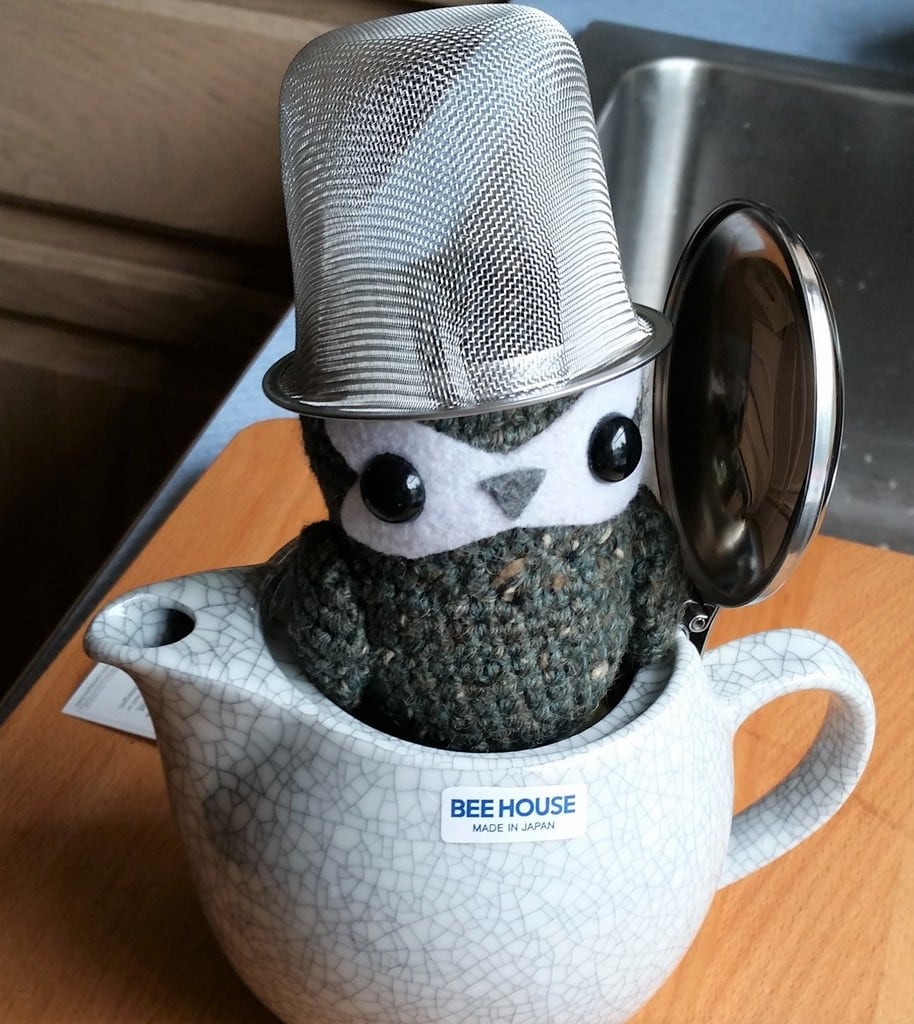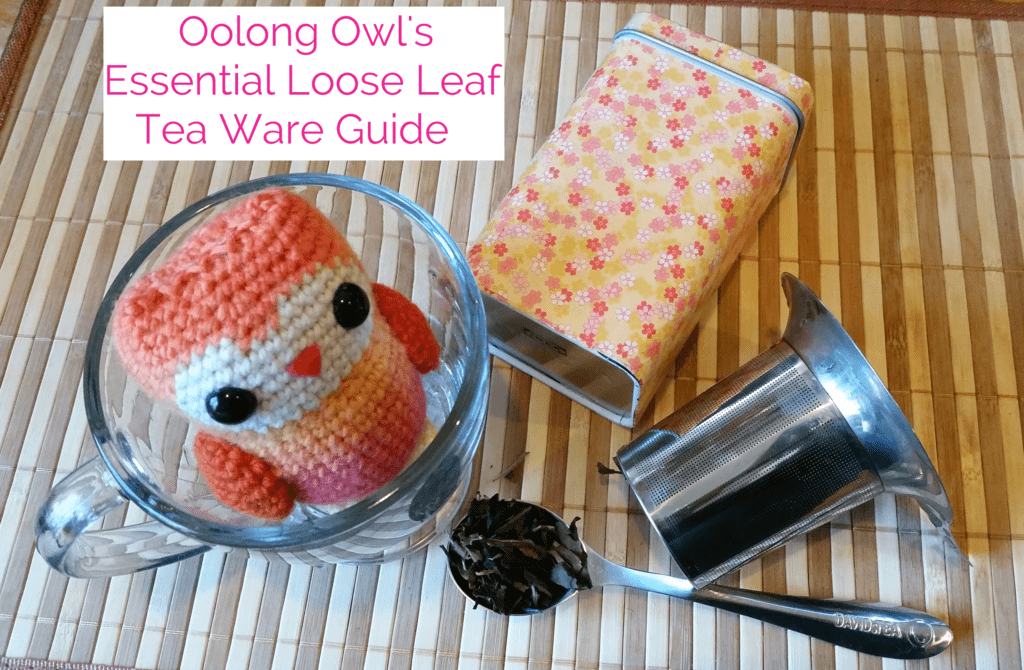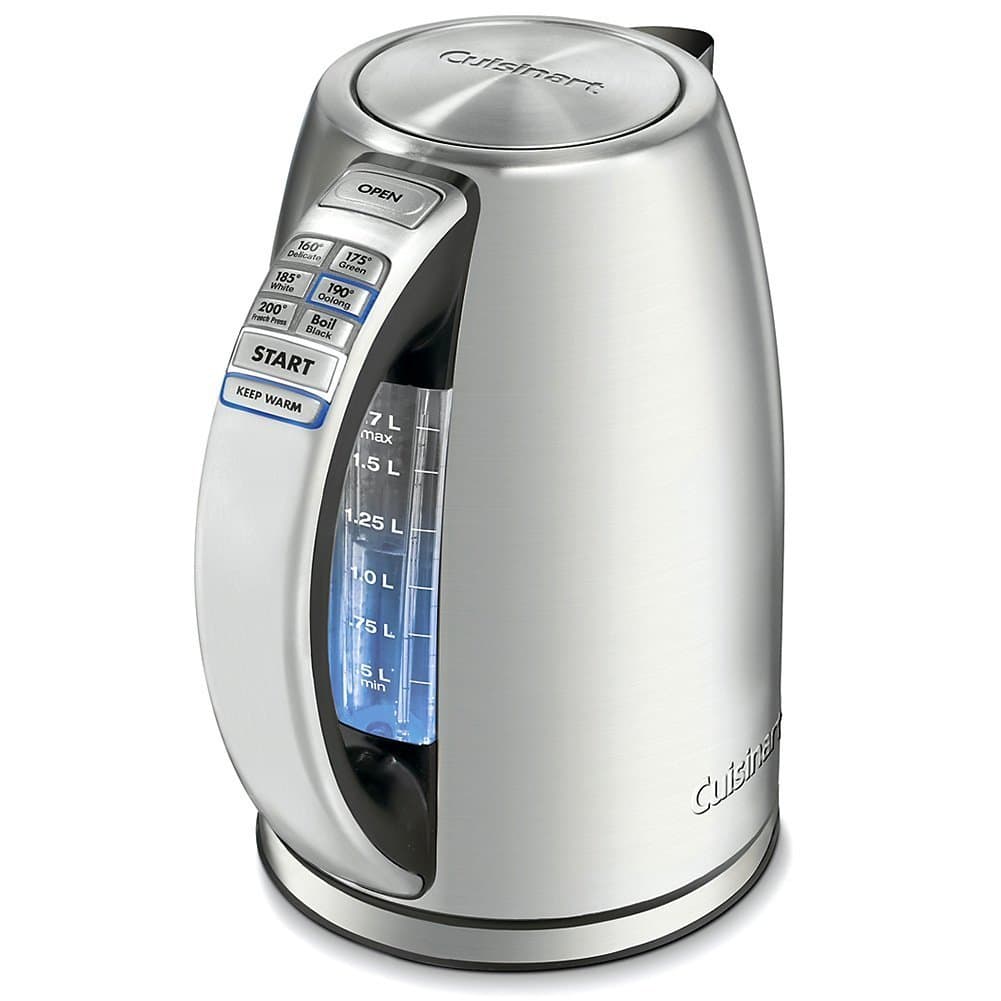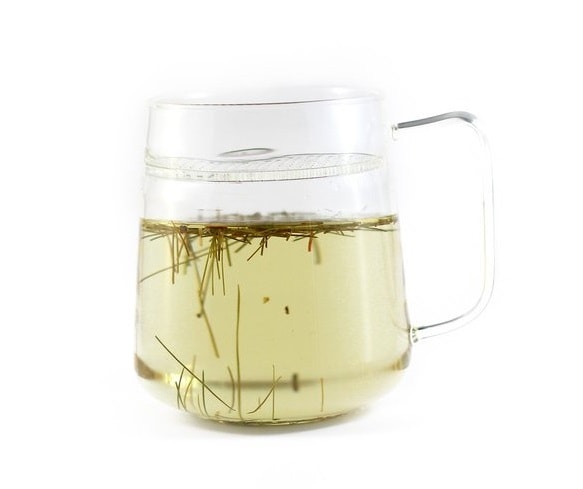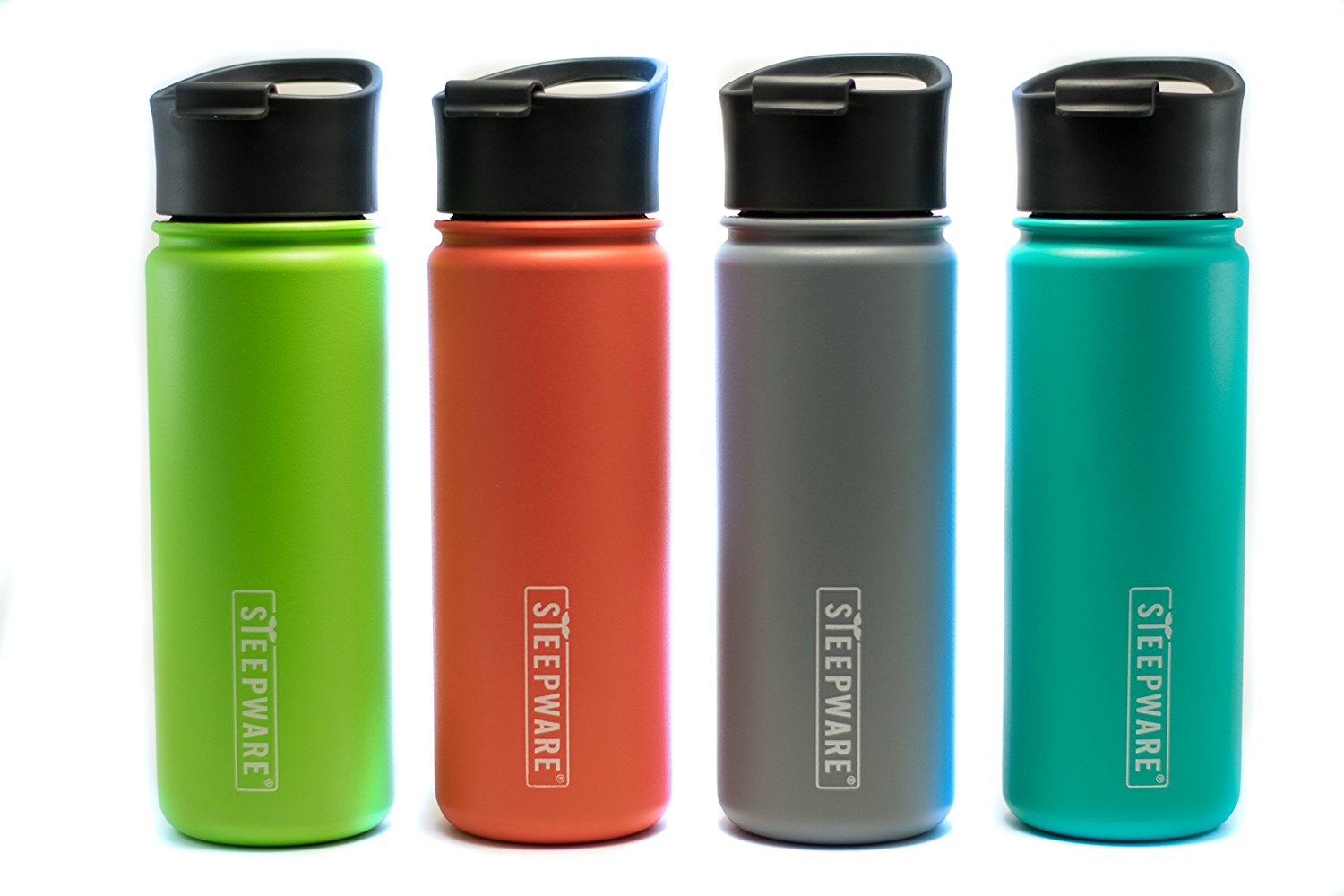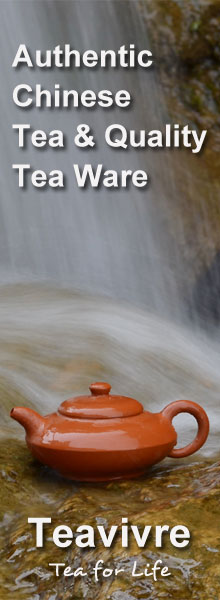Matcha is generally made from a specially grown and processed tea called Tencha. There are always exceptions to this, as sometimes tea sellers grind up other teas like Sencha or various Chinese Greens to cut cost or create a new profile.
The matcha today is made with Gyokuro, which commands a luxuriously higher price for Japanese teas. The cultivation of Gyokuro and Tencha are similar, as they are both shaded, steamed, but Gyokuro is rolled whereas Tencha is destemmed flakes. There is also a long research rabbit hole as different cultivars could be used for both teas, also changing the flavor profile.
What is extra special about these two matchas is that they are made by Mr. Sakamoto, aka The Samurai Tea Master, due to diligent organic tea farming practices. Sei Mee Tea goes into more detail about Samurai Tea Master here.
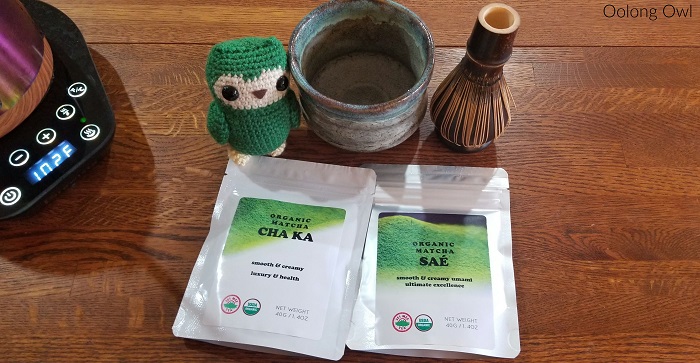
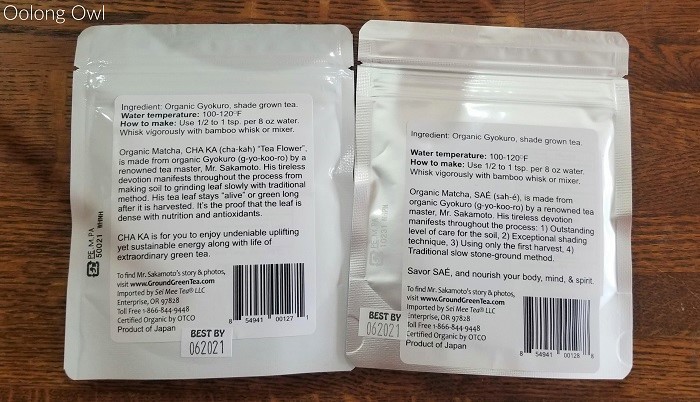
Both matchas are instructed to do 100-120F (38-49C) water temperature, just like gyokuro. I only got one kettle for this job, the only one I have that goes that low. In reality, I think my tap water actually goes that high, but no way I’m using tap water for these teas. I used 115F/46c water temperature, 2 grams of sifted leaf, water level to taste, somewhere in the 5oz to 7oz (150ml to 200ml).
Organic Gyokuro Matcha “Cha Ka”
The powder of Cha Ka Matcha is fragrant with a sweet, fruity, and buttery scent.
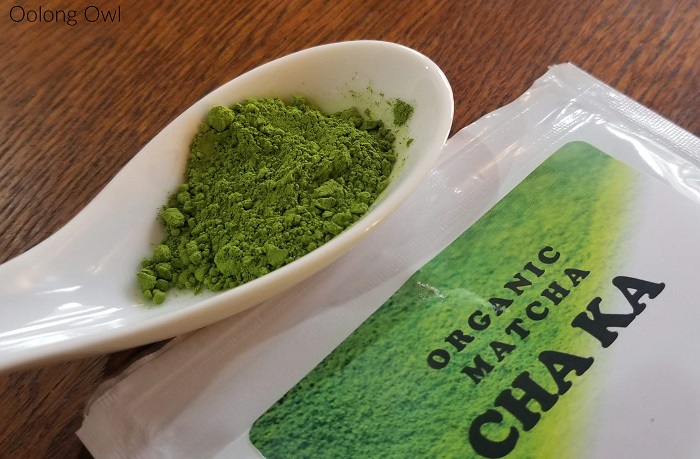
Cha Ka doesn’t have the greatest matcha appearance, I had to work for the little foam I got.
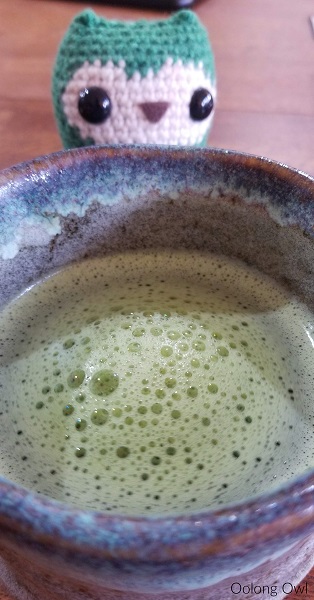
However, Cha Ka’s flavor is something else. It is a thick buttercream upfront and coats the mouth as if I was drinking cream, layering in savory umami. Some sips are like pristine button mushrooms and others have a gentle sweetness. The finish is fresh blades of sweet grass, contrasting the thick creamy texture. This tea is not dry feeling nor marine tasting at all. I do not get a bitterness either, but I can taste it looming if I were to go higher on water temperature.
This is my first tea and matcha of the day and it already put me in the zone. I am focused and ready to work. The work this morning? Watering my 40+ plants.
Organic Saemidori Gyokuro Matcha “Sae”
Saemidori Matcha is the premium stuff, promised to be the ultimate matcha experience. This one smells different than the other matcha. I am trying to put my finger on the complex smells. Sae matcha has slightly baked goods, fruity, mowed lawn, and how artist watercolors smell.
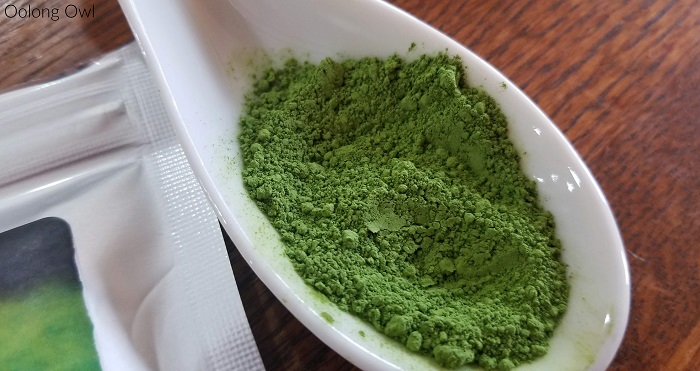
Sae Matcha is strong. I had to add more water than the last matcha so it wasn’t overwhelming. The foam worked up thick and fine bubbles, making a picture perfect matcha.
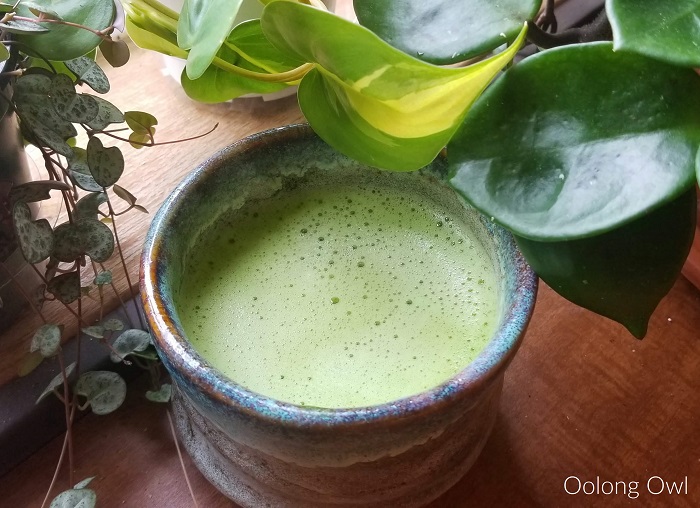
The flavor is ultra fresh and sharp blades of grass. I had to water down as the grass was too intense. Saemidori Matcha’s background flavors are butter and unroasted almonds without the skin. The texture is crazy as it sips in generously pepto bismal thick, but if that thickness was a fluffy cloud of sweet grass. As the session goes on, it gets sweeter. Sae Matcha is also not bitter or dry.
Comments
Both of Sei Mee Tea’s Samurai Tea Master’s Gyokuro Matchas are awesome, though you need to follow the very low temperature, which is lower than other matchas. If you make gyokuro already, then this low temperature is nothing new.
I actually like both teas, though if I were to buy more I would likely go with the Cha Ka one, despite it being cheaper and less froth. Sae was crazy complex, which I like in my teas, but Cha Ka had an incredible thickness to it and the simplicity was the beauty in it for me.
To put pricing into perspective, Cha Ka is $18.95 for 40grams ($0.47 per gram) whereas Sae is $33.25 for 40 grams ($0.83 per gram).
Regular, not matcha ground Gyokuro by Mr. Sakamoto Samurai Tea Master is also available.
(matcha provided for review)






